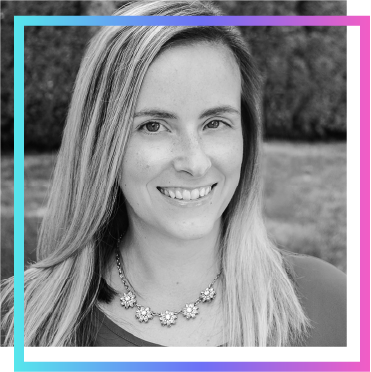We may receive commission if you decide to use counseling services through BetterHelp or other resources on our website.
Telemental / Telehealth Health Regulation in Nevada
TABLE OF CONTENTS
I. What are the licensure requirements in Nevada for telehealth mental health care?
Medical professionals and health care providers licensed to practice in Nevada may provide telehealth and telemental services to patients at originating sites within the state.
Requirements for out-of-state treatment
Nevada’s licensure requirements allow out-of-state providers to treat you, as long as they have a current license to practice in the state. As a member of the Interstate Medical Licensure Compact, Nevada allows out-of-state physicians to expedite license applications for practicing in the state. Specialist physicians licensed in another state who are registered with one of the boards of the American Board of Medical Specialties may obtain special-purpose licenses to treat Nevada patients using telehealth.
Emergency licensure
During the COVID-19 emergency, the governor’s emergency directive allowed medical and mental health care providers licensed in other states to provide telehealth care to Nevada residents by submitting an emergency license declaration. This directive also allowed retired skilled medical professionals and those with suspended licenses to treat you provided their license wasn’t suspended as a consequence of disciplinary action.
The restriction on using your smartphone’s video and audio capabilities to consult your doctor for telemedicine was lifted as a result of a temporary federal waiver.
II. What are the online prescribing regulations in Nevada?
You can get a prescription online through a telehealth consultation as long as the prescribing physician has a valid doctor-patient relationship with you. This may be established through a face-to-face or telehealth visit within the preceding six-month period. You can obtain controlled substances for pain relief provided the physician completes a risk assessment, develops a pain treatment plan, and discusses alternative pain control methods with you. Your informed consent also must be obtained. Follow-up prescriptions require the practitioner to meet with you physically or virtually to review your treatment plan.
III. What are other common telehealth restrictions in Nevada?
Nevada has few telehealth restrictions apart from how the consultation takes place. Provided your treatment is medically necessary and suitable for telehealth, it’s allowed. Additionally, your provider must have a valid license to practice from an appropriate State Board, and your originating site must be in Nevada.
Types of telehealth services allowed
Nevada limits reimbursement to two forms of telehealth services:
- Live, interactive video consultations between providers at remote locations and patients at an originating location.
- Store-and-forward consultations where clinical information is collected at the originating site and forwarded electronically to physicians at a remote site.
There’s no reimbursement for remote patient monitoring. Email, messaging, and other forms of noninteractive communication are prohibited. There’s no restriction on the originating site’s location, which can be at your home, at a rural health center, or any location enrolled as a Medicaid provider.
Types of providers allowed to offer telehealth services
Nevada has few restrictions on who you can go to for telehealth care. Services should be consistent with those usually offered by the provider and suitable for delivery through telehealth. Services needing person-to-person contact, such as group, occupational, and physical therapy, are excluded.
Allowed telehealth providers include:
- Physicians
- Physician assistants
- Nutritional therapists
- Podiatrists
- Clinical psychologists
- Psychological assistants
- Mental health therapists
- Clinical social workers
- Audiologists
- Speech therapists
- Registered nurses
Emergency allowances
During the COVID-19 emergency, the governor relaxed licensing requirements allowing medical professionals to obtain temporary licenses. This included retired physicians, those with lapsed licenses, and medical professionals licensed in another state. Exceptions were medical professionals whose licenses were revoked following disciplinary action.
IV. Telehealth provider resources in Nevada
Telehealth regulations are constantly evolving as regulators understand the benefits of telehealth in rural and other settings. Some changes stem directly from experience gained during the relaxation of certain requirements, such as those allowing you to use your smartphone for video consultations. Here are several resources you can use to stay informed about changes in telehealth services in Nevada.
Department of Health and Human Services – Division of Health Care Financing and Policy
The Nevada Department of Health and Human Services exists to promote health services to all state residents. It does this through the provision and facilitation of essential family and health services. The department offers numerous resources and programs. You can also obtain information about telehealth policies from the division.
Contact Information: Website | 775-684-4000
Nevada Board of Medical Examiners
The Board of Medical Examiners regulates licenses for medical providers. The board allows you to check if your physician, whether in Nevada or out-of-state, holds a current Nevada license to practice telehealth in the state.
Contact Information: Website | 888-890-8210
Nevada Division of Insurance
The Nevada Division of Insurance enforces Nevada insurance statutes. It provides the public with information pertaining to insurance, particularly health insurance. Consumers can verify licenses and file complaints through the division. The department also maintains a list of essential health benefits that must be provided by insurers.
Contact Information: Website | 702-486-4009
V. Sources
- Nevada Legislative Counsel Bureau | Telehealth Fact Sheet | Last accessed July 2024
- Nevada Department of Health and Human Services | Memorandum | Last accessed July 2024
- Benefits.gov | Nevada Check Up | Last accessed July 2024
- Interstate Medical Licensure Compact | States | Last accessed July 2024
- Nevada Governor | Declaration of Emergency Directive | Last accessed July 2024
- Credentialing Resource Center | CMS lifts restrictions on telehealth services | Last accessed July 2024


